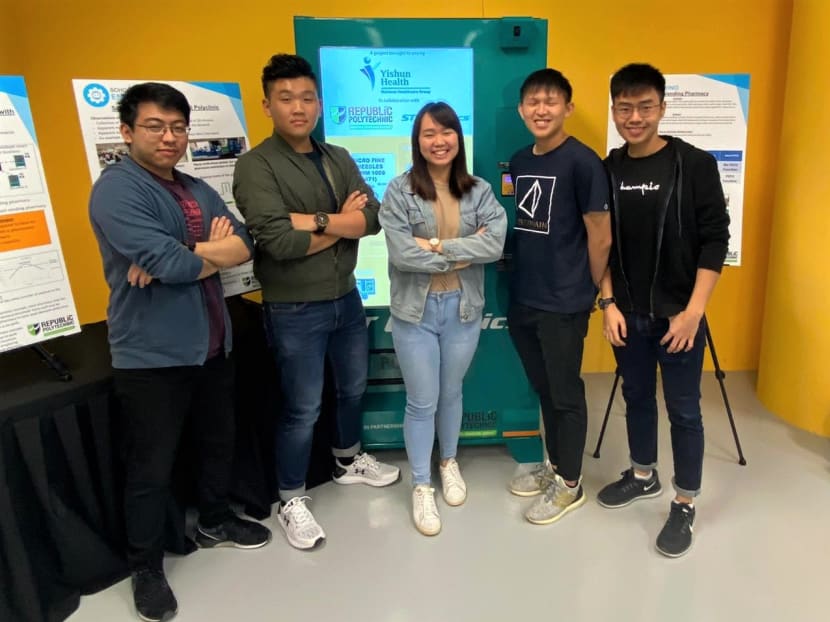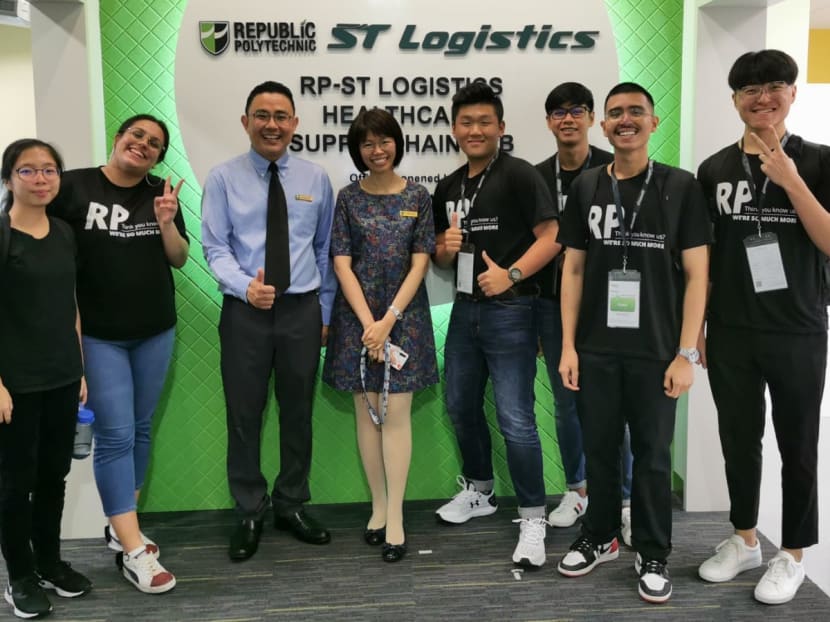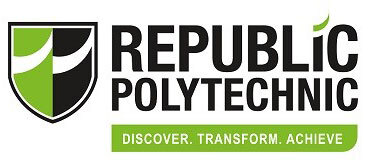Moving goods, doing good: How a supply chain management graduate plans to make the world a better place
Mr Justin Ang has been fascinated by the power of logistics to keep the world moving. This Republic Polytechnic student has benefited from the school's problem-based learning methods to find flexible solutions to real-world issues.

Taken before the outbreak of COVID-19, this image shows Justin (second from left) and his teammates with their completed final-year project – a smart vending machine. Photos: Justin Ang
Mr Justin Ang learnt to solve real-world problems at Republic Polytechnic.
Since his days as a Punggol Secondary School student, Mr Justin Ang, 20, has been fascinated by the power of logistics to keep the world moving.
Furthermore, since Singapore is a strategically located logistics hub, he knew that there would be ample opportunity to contribute to the industry on a global scale. Thus, after completing his secondary school education, Mr Ang enrolled in the Diploma in Supply Chain Management at Republic Polytechnic (RP) in 2017.
“What sets Republic Polytechnic apart from the other polytechnics is the way lessons are structured,” he shared. “Unlike conventional classrooms, RP’s Problem-based Learning (PBL) is incorporated into lessons, where we are tasked to analyse and solve scenarios that are similar to problems faced in real-life industries.”
A SMART SOLUTION FOR PHARMACEUTICAL DISTRIBUTION
For his Final Year Project (FYP), Mr Ang and his team worked on a smart vending machine to enable the distribution of diabetic and eye medication to residents living near a medical centre in the North, where the pharmacy had recently closed.
“Smart vending machines have a lot of potential. They not only allow for cashless payment, they also ensure that vendors can remotely check inventory and expiry dates, and make restocking decisions,” he explained. “They are especially useful during the COVID-19 pandemic as each machine can distribute items with minimal human contact.”
For the project, Mr Ang’s team worked with industry partners like ST Logistics, KALMS and a restructured hospital. The experience allowed him to develop valuable skills like negotiation and adaptability. For example, there were disagreements over what products the vending machine should contain.
Said Mr Ang: “The machine has limited capacity. Besides the items that our client wanted in there, we had to take into consideration products that could help to improve sales. After discussions with our client, we were able to secure 30 per cent of the capacity for those products, while the other 70 per cent remained earmarked for diabetic and eye medication.”

Mr Ang worked on his FYP in the RP-ST Logistics Healthcare Supply Chain Lab which was jointly inaugurated in January 2020 (above) with the aim of exposing students in RP’s supply chain diploma courses to smart technologies driving industry transformation. “Working in the newly opened lab, we were able to see many new innovations by our schoolmates in an open space where we could brainstorm ideas and complete our projects.”
SEEING THE WORLD THROUGH SUPPLY CHAINS
From March to August in 2019, Mr Ang served an internship at the ocean freight department of Panalpina World Transport (Singapore), an international freight-forwarding company. There, he got the opportunity to visit the company’s newly opened Panalpina Logistics Centre and learn more about the process of warehousing, as well as the latest industry technology.
At the time, Panalpina had just rolled out a tech-based tracking initiative named Shipment Visibility. As part of his department’s systems and operations management team, Mr Ang was tasked to assist with its launch in the workplace.
“Many of my colleagues were still unsure of how to go about using this software,” he recalled. “I took part in video meetings with multiple departments from different countries to try and understand the problems faced, before discussing them with my supervisor and then guiding my colleagues on how to use the software.”
A FOUNDATION FOR THE FUTURE
Mr Ang, who is currently serving National Service after graduating from RP last year, intends to pursue a degree in supply chain management and eventually become a purchasing officer. He is drawn to working in the humanitarian supply chain, helping to ensure disaster relief goods are procured at a fair and competitive price and delivered as quickly and efficiently as possible.
He believes that his RP education has given him a strong foundation for his future. “RP alumni stand out from other polytechnic graduates as they have already been exposed to real-world industry challenges in their lessons.
“Thanks to PBL, students are encouraged to explore and be flexible with their thinking, equipping them with problem-solving skills that will aid them when they enter their respective fields.”
Find out more about a rewarding education at Republic Polytechnic’s Virtual Open House from Jan 7 to 9, 2021.
Attend RP’s admissions webinar on Jan 12, 2021 to gain useful information and valuable tips on applying to a polytechnic through the Joint Admissions Exercise.








